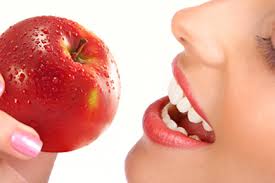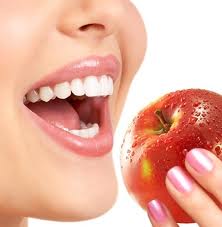How to Stop Floss From Getting Stuck Between Your Teeth
October 20th, 2016
 Flossing is one of the more overlooked (and frequently skipped) steps to good dental hygiene. Dentists agree it’s an essential part of dental care. But if it seems like your floss is getting stuck between your teeth more often than your food does, it’s tempting just to brush your teeth and skip flossing. Don’t do it!
Flossing is one of the more overlooked (and frequently skipped) steps to good dental hygiene. Dentists agree it’s an essential part of dental care. But if it seems like your floss is getting stuck between your teeth more often than your food does, it’s tempting just to brush your teeth and skip flossing. Don’t do it!
The Academy of General Dentistry cites flossing as the most important line of defense in fighting plaque. Flossing removes plaque and food particles that a toothbrush can’t reach, which leads to fresher breath and a reduced risk of gum disease and tooth decay.
The American Dental Association recommends brushing teeth for two minutes twice a day as well as flossing (or using another interdental tool) to clean between the teeth once a day. If your floss keeps getting stuck, there are solutions to help you floss with ease.
Reasons why floss may be getting stuck between your teeth
Dental floss is thin, but it can still get wedged in between teeth. This happens more often when you are experiencing one or more of the following:
- Your teeth are set too close together.
- There is plaque build-up between teeth.
- Tooth enamel or restorative dental work has started to break down and creates uneven surfaces between the teeth.
- You use an improper flossing technique. Are you making one of these common flossing mistakes?
How to prevent floss from getting stuck
Not all dental floss is created equal. Sometimes, switching types of floss can aid in preventing it from getting stuck in between your teeth.
Unwaxed dental floss, made of nylon fibers, is more likely to get stuck, shred, or break while flossing. Waxed dental floss is sometimes thicker because of the wax coating, but the wax also enables it to glide more smoothly between teeth.
Polytetrafluorethylene floss is another synthetic floss that is stronger than most conventional waxed or unwaxed varieties. It is also slick, which allows it to slide easily through the tight spaces in between your teeth.
Proper flossing technique
If your dental floss routinely gets stuck between your teeth, you might need to adjust your flossing technique to make flossing easier and more effective.
No matter what type of dental floss you choose, start with a strand about 18 inches long. Wind most of the length around your two middle fingers, leaving just a couple inches between your hands. Pull the floss tight, holding it taut with your index fingers and thumbs.
Use a gentle sawing motion to guide the floss between your teeth, moving it up and down. When the floss reaches the gum line, bend the floss into a C-shape around the tooth, allowing the floss to reach all the way to the base of the tooth.
Still working gently, scrape the floss against the base of the tooth, working on one side of one tooth and then moving to the side of the adjacent tooth.
Continue to use the up and down sawing motion, as you move, and be gentle! Keep the floss taut against the surface of your teeth to remove plaque, and avoid letting the floss dig into the gums, which can cause irritation, redness, and bruising.
After each tooth, unwind a clean section of floss from your fingers. Make sure to get into each crevice between the teeth, including the hard-to-reach teeth in the back of your mouth! When you're finished flossing your entire mouth, remember to rinse well to remove any leftover bits of plaque or debris.
If you're going to make an effort to floss, follow proper flossing technique to prevent your floss from getting stuck in the tight spaces in your mouth. Your teeth will thank you!
If you continue to experience problems flossing, visit Water Tower Dental Care! We can take a look at your teeth to see if there are any serious issues causing flossing to be difficult for you and teach you the proper way to floss in person.

 Flossing has been making headlines recently thanks to the U.S. departments of Health and Human Services Agriculture’s Dietary Guidelines for Americans. The most recently released guidelines did not include flossing, which was once a recommended activity for daily health. But does this mean
Flossing has been making headlines recently thanks to the U.S. departments of Health and Human Services Agriculture’s Dietary Guidelines for Americans. The most recently released guidelines did not include flossing, which was once a recommended activity for daily health. But does this mean  Many people substitute honey for sugar because of its
Many people substitute honey for sugar because of its  While people usually focus on keeping their teeth pearly white, your gums should not be overlooked. Even if your teeth are as healthy as they can be, your gums may not be free from disease. As gum disease is usually painless, it often goes unnoticed. Gum disease, however, is treatable and the damage can fortunately be reversed. Learn more about gum disease and treatments at home to prevent your gums from looking like
While people usually focus on keeping their teeth pearly white, your gums should not be overlooked. Even if your teeth are as healthy as they can be, your gums may not be free from disease. As gum disease is usually painless, it often goes unnoticed. Gum disease, however, is treatable and the damage can fortunately be reversed. Learn more about gum disease and treatments at home to prevent your gums from looking like  Everyone hates teeth discoloration, which is why whitening strips are so popular. But what do you do when the discoloration appears in the form of white spots on your teeth? Although these spots are primarily a cosmetic concern, they can affect oral health and should be treated.
Everyone hates teeth discoloration, which is why whitening strips are so popular. But what do you do when the discoloration appears in the form of white spots on your teeth? Although these spots are primarily a cosmetic concern, they can affect oral health and should be treated.
 When it comes to taking care of your teeth, there’s a lot more you can do than just brushing and flossing. In fact, those are just the first two steps to keeping your teeth healthy. Adding oral probiotics to your teeth-cleaning routine will help to ensure that you keep cavities away and an attractive smile going.
When it comes to taking care of your teeth, there’s a lot more you can do than just brushing and flossing. In fact, those are just the first two steps to keeping your teeth healthy. Adding oral probiotics to your teeth-cleaning routine will help to ensure that you keep cavities away and an attractive smile going. When it comes to taking care of our teeth, we generally hear the same kind of advice all of the time: brush and floss everyday and don’t eat too much candy. While this advice is extremely important, there are a lot of additional ways to keep your teeth healthy as well. We asked our dentists at Water Tower Dental Care to share some tips for taking care of your teeth that you probably haven’t heard before. Here are 6 unusual teeth tips straight from our dentists.
When it comes to taking care of our teeth, we generally hear the same kind of advice all of the time: brush and floss everyday and don’t eat too much candy. While this advice is extremely important, there are a lot of additional ways to keep your teeth healthy as well. We asked our dentists at Water Tower Dental Care to share some tips for taking care of your teeth that you probably haven’t heard before. Here are 6 unusual teeth tips straight from our dentists. There are a lot of conflicting opinions if apples are good for your teeth or not. Seems odd that it’s even a question. How could the fruit recommended to keep the doctor away hurt you? A few years back, the Toronto Star published some negative
There are a lot of conflicting opinions if apples are good for your teeth or not. Seems odd that it’s even a question. How could the fruit recommended to keep the doctor away hurt you? A few years back, the Toronto Star published some negative  However, though apples can hurt your teeth, their benefits greatly outweigh the risk. Not only can apples help our teeth, they can help regulate our blood sugar, are low in calories and are a great source of dietary fiber. The negative effects of apples are easily preventable and mostly depend on your apple eating habits. If you want the good benefits of apples without the negative impact, follow these steps:
However, though apples can hurt your teeth, their benefits greatly outweigh the risk. Not only can apples help our teeth, they can help regulate our blood sugar, are low in calories and are a great source of dietary fiber. The negative effects of apples are easily preventable and mostly depend on your apple eating habits. If you want the good benefits of apples without the negative impact, follow these steps:




 Website Powered by Sesame 24-7™
Website Powered by Sesame 24-7™